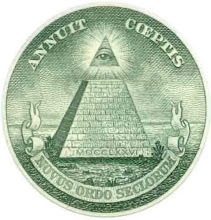
Long live the spoof.
The 82nd annual Ancients & Horribles Parade in Glocester takes place tomorrow, July Fourth, in the village of Chepachet, where, for a day at least, irreverence reigns.
“We are an odd mix of patriotism and irreverence,” says Connie Leathers, the parade chairwoman. “This is the only place where you can be politically incorrect and be rewarded.”
The float deemed best in the parade will win $500; the one regarded as most “ancient” will win $250; and the one most “horrible” will win $100.
This naturally raises questions: What are Ancients and Horribles? And when did adjectives become nouns?
As it turns out, it involves a healthy dose of creative license, a loosening of language, and a parody of history. In the mid 1600s, the nation’s oldest military organization, the Ancient and Honorable Artillery Company of Massachusetts, was established in Boston, where it’s still headquartered and carries on social and ceremonial functions.
“And Rhode Islanders being Rhode Islanders made fun of them,” Leathers explains.
Rhode Islanders took their fun to the streets. What started out as a mocking joke has become a rejoicing tradition: the Ancients & Horribles Parade.
Actually, there’s more than one. Cumberland also has a version, the Arnold Mills Parade, which is also in its 82nd year and founded on the Ancient and Horribles theme, but now isn’t nearly as frivolous as Glocester’s
“Theirs is more of a spoof,” says Joyce Hindle Koutsogiane, chairwoman of the Arnold Mills Parade. “We’ve gotten away from that in recent years. Ours is more of a traditional parade.”
The 1.5-mile parade features 17 bands and marching groups, including the Cycling Murrays.
“They play the fife while on unicycles. So that’s interesting.”
There’s also a stilt walker and a group of re-enactors who portray a British regiment during the Revolutionary War. The parade, according to Koutsogiane, is like Bristol’s, but different.
“It’s shorter and easier to access and leave. It’s not a whole day, and it’s still quite a parade.”
You may still see some vestiges of the Cumberland parade’s Ancients & Horribles roots.
“There is a lot to spoof,” Koutsogiane says.
And if spoofing’s what you want, Glocester is offering.
“We carry it a little further,” Leathers says.
But is carrying on in keeping with the Fourth of July?
Absolutely, according to Leathers, who points out that there’s a significant and fundamental Constitutional tenet embedded beneath the parade’s silliness: freedom of speech.
“If something is too profane or off-color, we have the right to refuse admittance. We want people to come and make their statement.”
Many accept the offer, saying all sorts of things. Although often Leathers isn’t quite sure what exactly is being said.
“There seems to be an inordinate interest among men to dress as women. And some are pretty good.”
Any topic is game for public display in the parade, which is something of a series of strolling and rolling skits.
“It’s whatever people feel strongly about.”
Often what people feel strongly about is what’s in the news. Vice President Cheney was spoofed for his hunting accident, and Rep. Patrick Kennedy was spoofed for his Ambien-induced late-night car accident, which featured a float careening down the street with a sign on the back: “I still drive better than my father.”
“It was tasteless,” Leathers says. “But it was funny.”
The Ancients & Horribles Parade isn’t all fun and games. There are traditional marching bands and contingents of war veterans and members of the Rhode Island National Guard.
“There is something for everyone to see. But it’s not necessarily always in good taste.”
If you want good taste, Bristol may be a better option, which tends to attract more politicians and so-called dignitaries.
“This is not a place to come to be a status-seeking individual. We are real life,” says Leathers.
And some citizens of Glocester take this parade seriously, while others don’t do so at all.
“There are folks who spend months working on their floats, and you can tell who they are. You can also tell the people who spent two hours and a half case of beer. That’s OK. The whole idea is for people to enjoy themselves.”
But once again, remember that your enjoyment of the parade on July 4 is made possible by the very principles that the holiday celebrates: independence, and everything that follows from it.
“It celebrates the American spirit of irreverence and saying what you think. There is always a place for people who do that. Everyone is always worried about what other people will think. This parade makes you think about what we’re thinking.”
The 82nd annual Ancients & Horribles Parade in Glocester takes place tomorrow, July Fourth, in the village of Chepachet, where, for a day at least, irreverence reigns.
“We are an odd mix of patriotism and irreverence,” says Connie Leathers, the parade chairwoman. “This is the only place where you can be politically incorrect and be rewarded.”
The float deemed best in the parade will win $500; the one regarded as most “ancient” will win $250; and the one most “horrible” will win $100.
This naturally raises questions: What are Ancients and Horribles? And when did adjectives become nouns?
As it turns out, it involves a healthy dose of creative license, a loosening of language, and a parody of history. In the mid 1600s, the nation’s oldest military organization, the Ancient and Honorable Artillery Company of Massachusetts, was established in Boston, where it’s still headquartered and carries on social and ceremonial functions.
“And Rhode Islanders being Rhode Islanders made fun of them,” Leathers explains.
Rhode Islanders took their fun to the streets. What started out as a mocking joke has become a rejoicing tradition: the Ancients & Horribles Parade.
Actually, there’s more than one. Cumberland also has a version, the Arnold Mills Parade, which is also in its 82nd year and founded on the Ancient and Horribles theme, but now isn’t nearly as frivolous as Glocester’s
“Theirs is more of a spoof,” says Joyce Hindle Koutsogiane, chairwoman of the Arnold Mills Parade. “We’ve gotten away from that in recent years. Ours is more of a traditional parade.”
The 1.5-mile parade features 17 bands and marching groups, including the Cycling Murrays.
“They play the fife while on unicycles. So that’s interesting.”
There’s also a stilt walker and a group of re-enactors who portray a British regiment during the Revolutionary War. The parade, according to Koutsogiane, is like Bristol’s, but different.
“It’s shorter and easier to access and leave. It’s not a whole day, and it’s still quite a parade.”
You may still see some vestiges of the Cumberland parade’s Ancients & Horribles roots.
“There is a lot to spoof,” Koutsogiane says.
And if spoofing’s what you want, Glocester is offering.
“We carry it a little further,” Leathers says.
But is carrying on in keeping with the Fourth of July?
Absolutely, according to Leathers, who points out that there’s a significant and fundamental Constitutional tenet embedded beneath the parade’s silliness: freedom of speech.
“If something is too profane or off-color, we have the right to refuse admittance. We want people to come and make their statement.”
Many accept the offer, saying all sorts of things. Although often Leathers isn’t quite sure what exactly is being said.
“There seems to be an inordinate interest among men to dress as women. And some are pretty good.”
Any topic is game for public display in the parade, which is something of a series of strolling and rolling skits.
“It’s whatever people feel strongly about.”
Often what people feel strongly about is what’s in the news. Vice President Cheney was spoofed for his hunting accident, and Rep. Patrick Kennedy was spoofed for his Ambien-induced late-night car accident, which featured a float careening down the street with a sign on the back: “I still drive better than my father.”
“It was tasteless,” Leathers says. “But it was funny.”
The Ancients & Horribles Parade isn’t all fun and games. There are traditional marching bands and contingents of war veterans and members of the Rhode Island National Guard.
“There is something for everyone to see. But it’s not necessarily always in good taste.”
If you want good taste, Bristol may be a better option, which tends to attract more politicians and so-called dignitaries.
“This is not a place to come to be a status-seeking individual. We are real life,” says Leathers.
And some citizens of Glocester take this parade seriously, while others don’t do so at all.
“There are folks who spend months working on their floats, and you can tell who they are. You can also tell the people who spent two hours and a half case of beer. That’s OK. The whole idea is for people to enjoy themselves.”
But once again, remember that your enjoyment of the parade on July 4 is made possible by the very principles that the holiday celebrates: independence, and everything that follows from it.
“It celebrates the American spirit of irreverence and saying what you think. There is always a place for people who do that. Everyone is always worried about what other people will think. This parade makes you think about what we’re thinking.”

